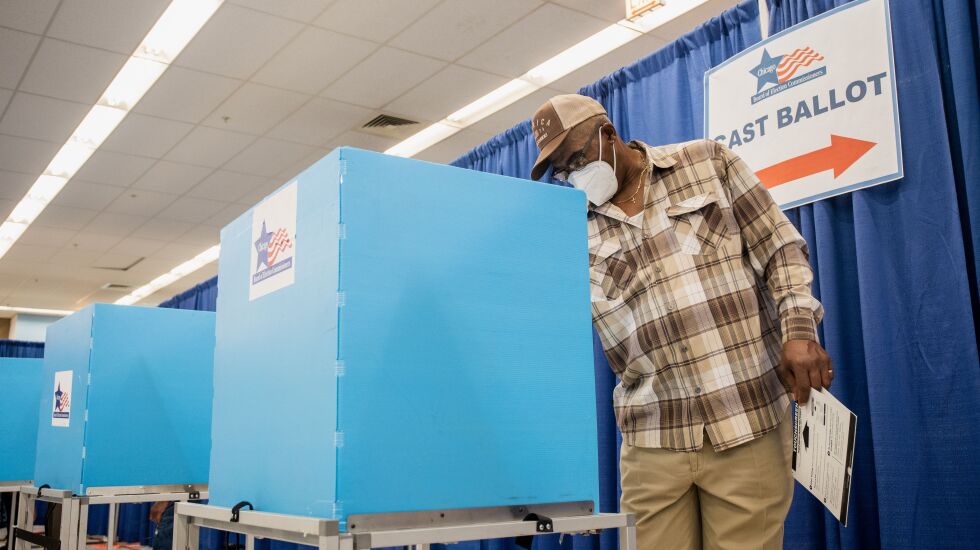
While the upcoming Chicago municipal elections have recently captured the attention of mayoral and aldermanic candidates, another set of elections will be equally as important as Chicagoans decide for the first time ever who they choose to serve on their local Police District Councils.
All Chicagoans will now have a say in city’s policing and this new opportunity needs to include the right balance of crime prevention, effective partnerships and oversight that is conducive to collaboration and meaningful results.
Regardless of political affiliation, all Chicagoans need the same thing: safe communities and a public safety structure that can keep it that way.
Now more that ever, Chicago business owners, city shoppers, CTA users, students, parents, the elderly, tourists, homeowners, renters, taxpayers, civilians and police officers can agree on the urgency of fixing our public safety woes.
We can take a step forward in that direction by electing representatives to Police District Councils. These elected positions, three for each of the city’s 22 Police Districts, will have the opportunity to weigh in on public safety matters, including choosing a citywide commission to suggest policing policies, no-confidence votes and possible removal of the police superintendent, police board members or head of the Civilian Office of Police Accountability.
While most elections naturally lend themselves to policy preferences and taking sides, it would be in the best interest of all Chicagoans if these new district councils focused on addressing public safety needs with balance.
Instead of pointing fingers and arguing about reaching levels of consent decree compliance, district council members should discuss solutions that empower both police officers doing their job and entrust members of the public that want effective policing.
A few areas where that can begin are in recruitment and retention of qualified officers, and training and cross-training on key public safety components including tactics, technology, social media, violence prevention and mental health professionals.
Other matters that will require district council collaboration include departmental understaffing, human resource management, proper amount of officers days off, officer well-being, overtime and other factors that often result in poor decisions and costly lawsuits.
Civilian input is necessary for decisions that if done effectively, can benefit both those that serve and protect as well as taxpayers that receive and fund those services. Finally, public safety and accountability doesn’t stop with policing. Crucial input is needed in coming up with solutions and recommendations for areas in public safety that are relevant but outside the scope of policing matters.
Another key component of our city’s public safety are the duties performed by the Cook County state’s attorney office. The public needs transparency and effectiveness when it comes to prosecution and has lacked input on the effectiveness of these services.
The district councils along with the Community Commission for Public Safety and Accountability should also ensure the interactions between policing and proper prosecution, especially those involving violent crimes are a top priority. Solely focusing on policing is an incomplete approach to public safety.
Chicago has long awaited a citizen’s voice on public safety. Now that the public won’t be guided by appointed civilians but rather by their own choice of district council representatives, our city stands to benefit from the opportunity to remedy public safety.
This important task is more likely to succeed if we remember that all of Chicagoans want the same thing: a safer Chicago. And tno matter who gets elected their approach should be balanced and holistic.
Froylan Jimenez is Chicago Public Schools civics teacher.
The Sun-Times welcomes letters to the editor and op-eds. See our guidelines.
The views and opinions expressed by contributors are their own and do not necessarily reflect those of the Chicago Sun-Times or any of its affiliates.







